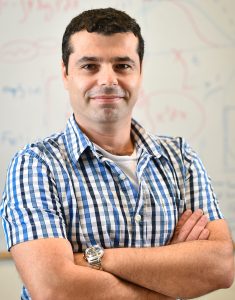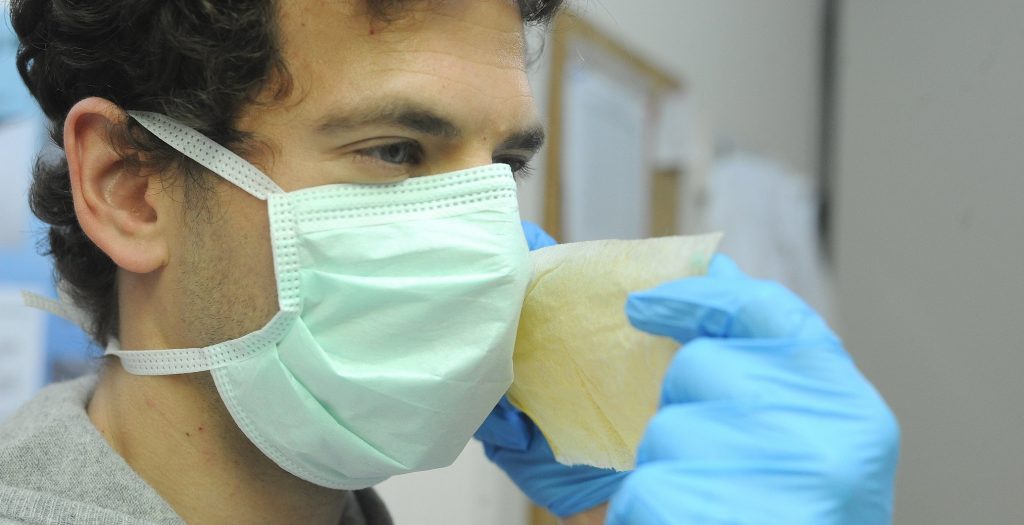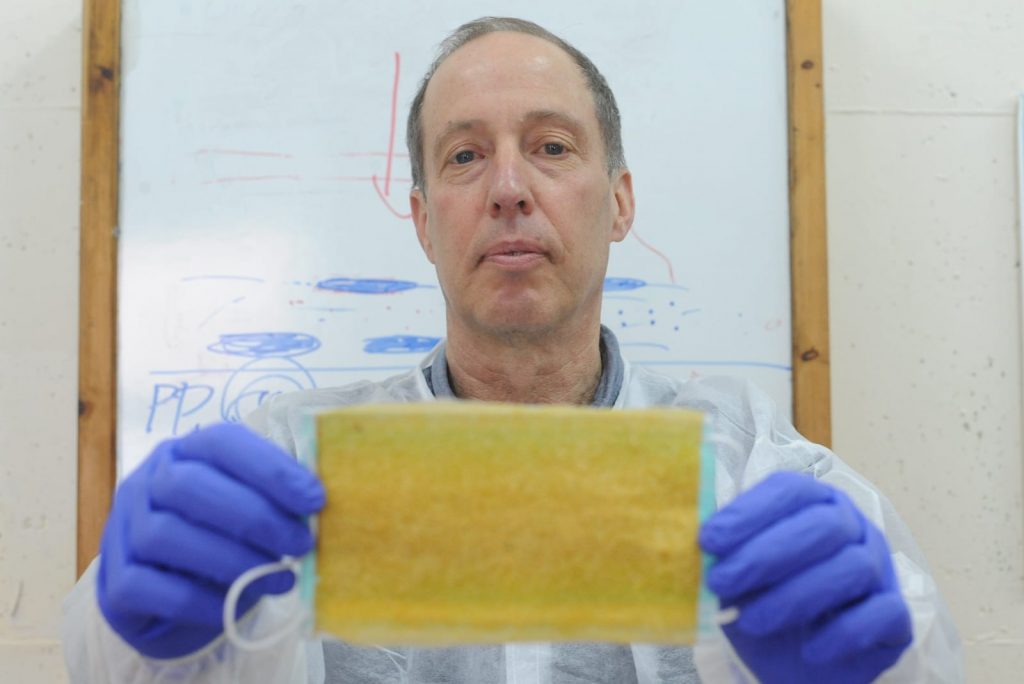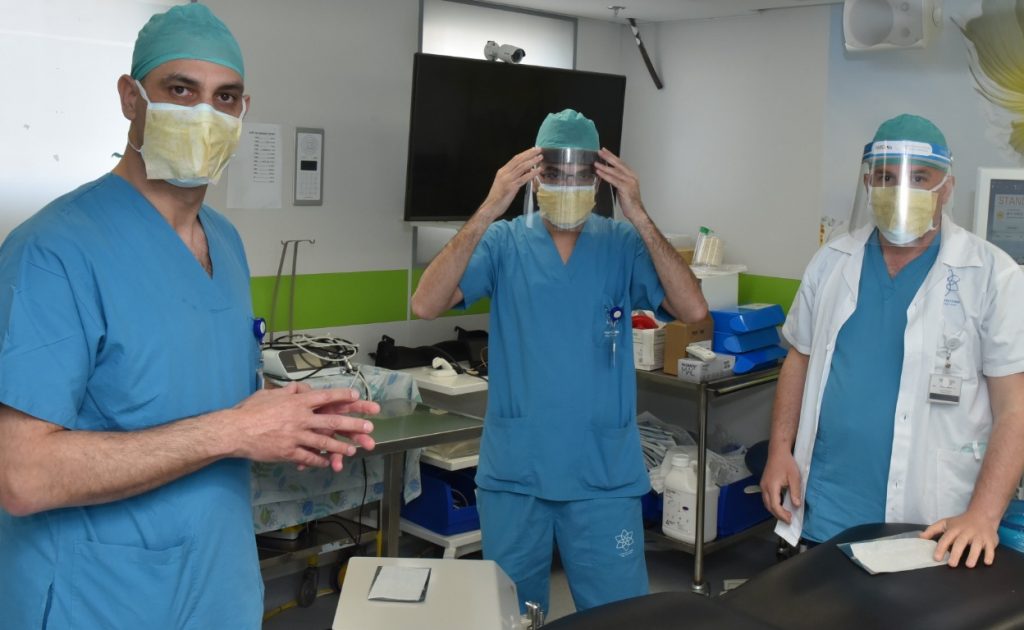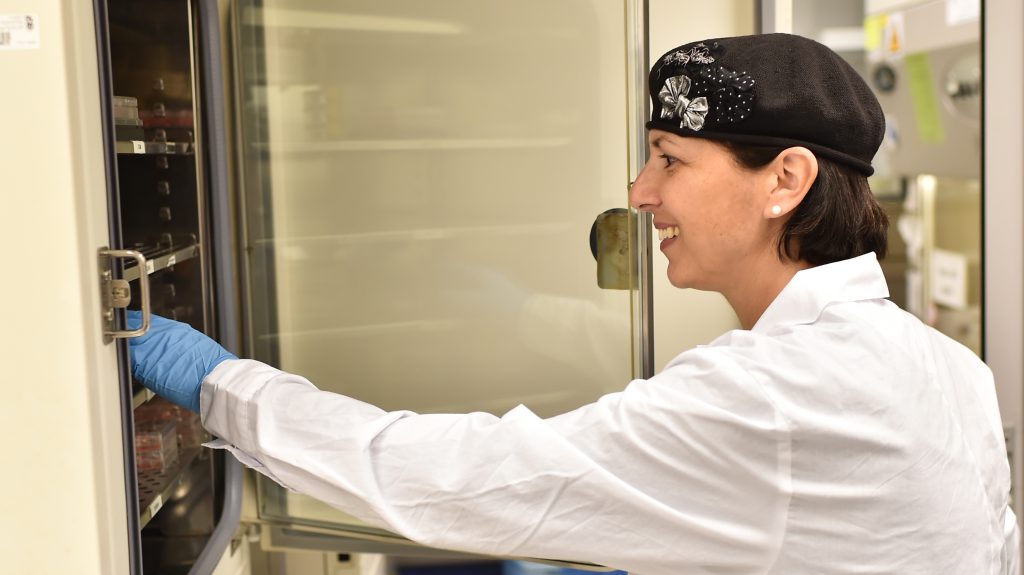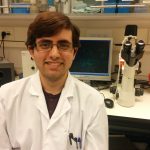In the midst of a state of emergency, hundreds of Technion students volunteer to support the nationwide measures to counter the COVID-19 pandemic.
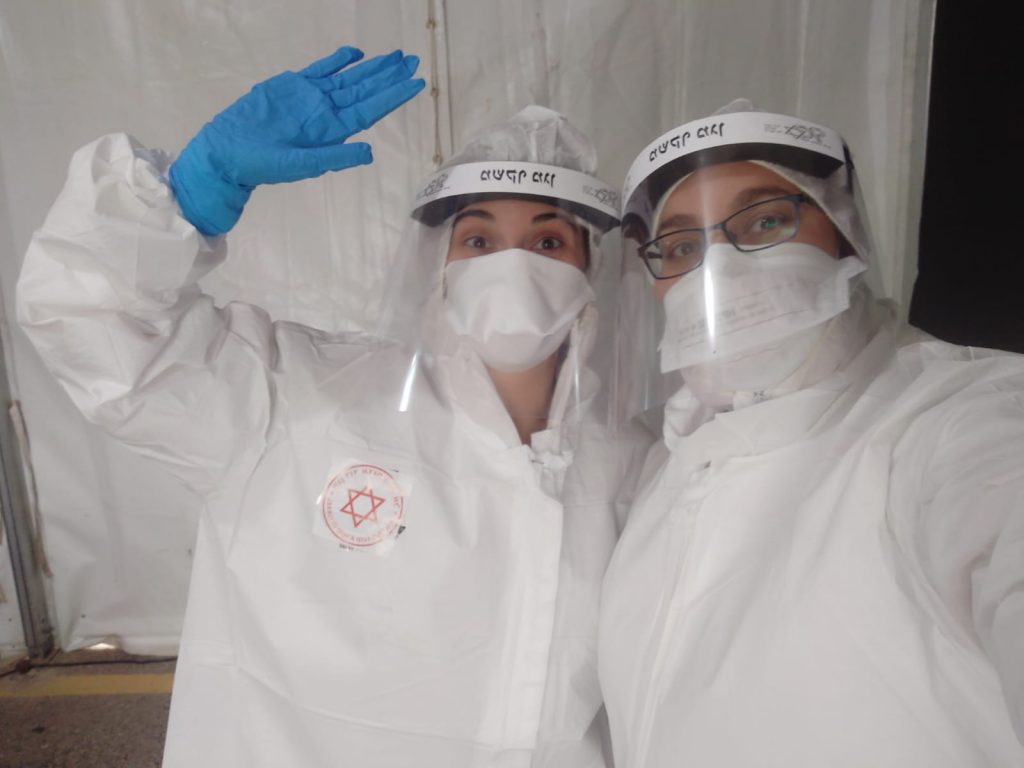
Technion students recruit to the COVID-19 volunteer effort.
The Technion Student Association (TSA) has rapidly mobilized the many students who are volunteering time and energy to minimize the human cost of COVID-19 in Israel. Hundreds of Technion students are contributing their time and skills to help those most affected by the crisis.
In late February and early March 2020, around 15 students were self-quarantined in the dorms of Technion City. Many of these don’t have families in Israel. The TSA rapidly stepped up to support them by staying in contact, providing food and helping in a variety of other ways. Since then, the student association has also been actively involved in ensuring that students are not affected academically by COVID-19, in particular as the entire Technion has switched to online platforms.
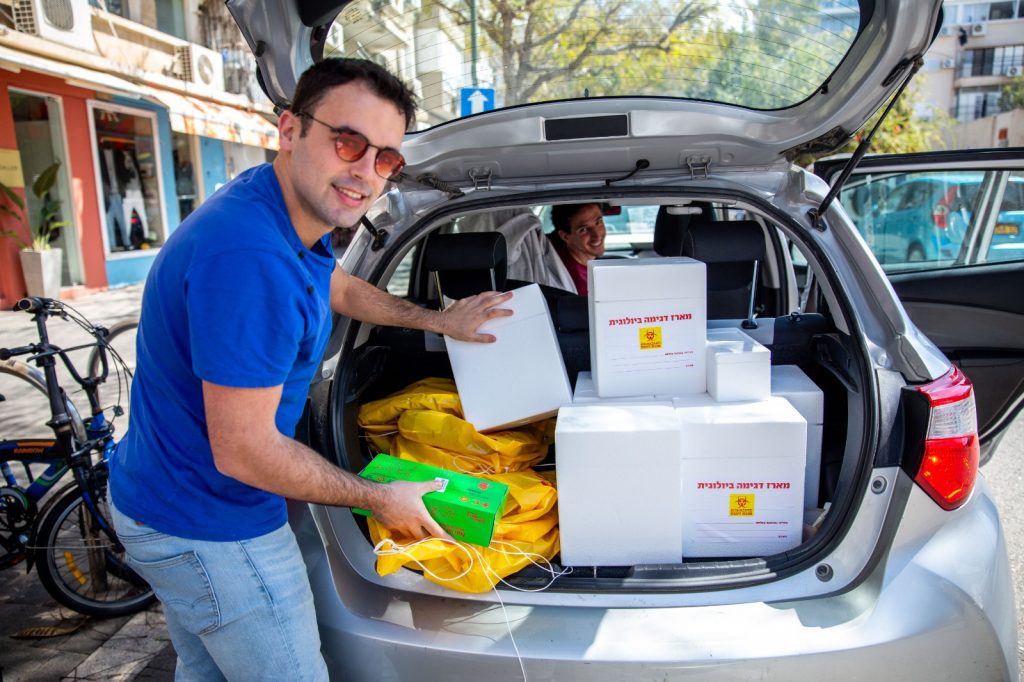
Technion students recruit to the COVID-19 volunteer effort.
Suddenly, most of Israel’s population has moved into lockdown. This led to a number of TSA initiatives of social support. Several of these include close collaboration with Haifa’s Welfare Department. Many senior citizens who are currently self-isolating suffer from loneliness, practical difficulties, and other quarantine-related issues. The TSA obtained a list of elderly people from Haifa’s Welfare Department and over one hundred Technion students are maintaining contact with people on the list, calling them regularly to alleviate their sense of isolation and checking to make sure they are alright. If necessary, they pass on specific problems and requests to the appropriate entities.
More than 150 Technion students have joined up to provide meals to elderly citizens in need, many of whom previously picked up their meals in person but cannot do so during the coronavirus pandemic. Volunteers help pack the food and physically distribute the meals throughout the Haifa region.
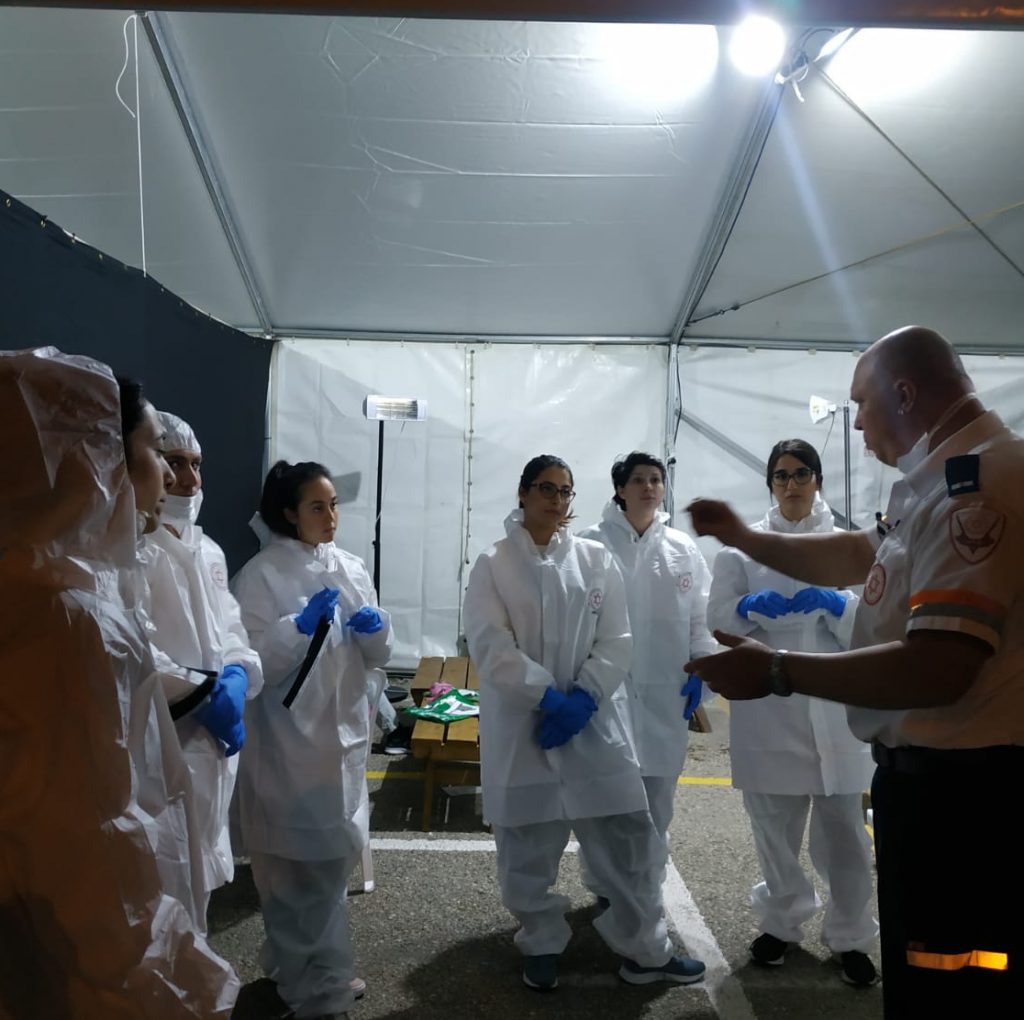
Technion students recruit to the COVID-19 volunteer effort.
Another project in which the TSA is coordinating with Haifa’s Welfare Department involves donating computers to the city’s children and students. Since children are expected to continue their education remotely, those that do not have computers are unable to participate and are forced to stop studying. For years, the TSA has run a project whereby old Technion computers are fixed and upgraded by student volunteers and donated to Technion students. This project has been extended so that Haifa’s school children and students can receive computers and pursue their education from home. Technion’s Faculty of Computer Science has generously donated a large number of computers and TSA volunteers are also contacting high-tech companies and other potential donors. The volunteers personally deliver the computers to the homes of eligible recipients.
“As Technion students, we understand the importance of education and we want to ensure that everyone has an equal opportunity,” says Linoy Nagar Shaul, Chair of the Technion Student Association, adding that other cities in northern Israel have also approached them to join the computer donation project.
Several impressive initiatives involve medical students at Technion’s Rappaport Faculty of Medicine. Among other projects, they are volunteering to staff an ad hoc school for the children of doctors working at Haifa’s Rambam Medical Center. Since doctors are even more overworked than usual these days, schools are closed, and grandparents need protection, caring for their children is a national priority.
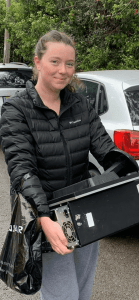
Technion students upgrading, fixing and distributing computers so that school can go on under COVID-19 lockdown
Technion medical students are also volunteering with Magen David Adom (Israel’s Red Cross) at the drive-through COVID-19 testing station in Haifa, as well as testing people in their homes. They were trained at the Faculty of Medicine and at the MDA station in Haifa and have been certified to carry out the testing.
In a project led by Dr. Lilach Dolev, medical students are also helping out at Clalit Health Fund clinics, taking on tasks such as triage at the entrance to the clinics and equipping possible Coronavirus patients with protective gear. They also assist in the clinics’ call centers, responding to queries that can be handled by phone. Under the leadership of doctoral student Omer Shkadi, a group of Technion doctoral students is volunteering in virology labs in order to speed up the processing of COVID-19 tests. Medical students will also soon volunteer in Rambam’s mental health clinic – an initiative of Dr. Vered Tal.
During this unsettling period, medical students are also volunteering to keep in touch with Holocaust survivors and senior citizens through the Foundation for the Benefit of Holocaust Victims.
In addition, the TSA is organizing a blood drive on campus and is planning other activities to alleviate the plight of everyone affected by the current crisis. Indeed, in the midst of this global catastrophe, the involvement of Technion’s students in so many crucial outreach projects – despite the fact that they are busy with their academic obligations – shows how also this cloud has a silver lining.







